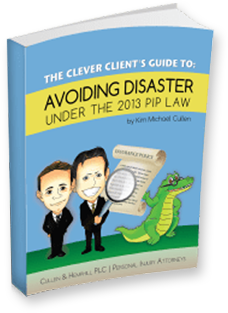No story has dominated the news more recently than the Penn State University child sex abuse scandal. The main part of the story is probably familiar to most of us by now: a long-time Penn State assistant coach was caught by a graduate assistant performing a sex act on a boy in the locker room showers at the Penn State football complex in 2002.
The graduate assistant did not intervene, but the next day did report what he saw to legendary head football coach Joe Paterno, who reported the event up the chain-of-command to the Penn State Athletic Director, Tim Curley. Mr. Curley then apparently alerted Penn State Senior Vice President Gary Schultz. Unfortunately, it appears that none of these men made any further report of the child sex abuse to police, child welfare officials, or anyone else. For whatever reason, the matter was apparently kept secret by the folks at Penn State, a clear violation of Pennsylvania state law — AND a situation which potentially allowed more child sexual abuse to occur.
Recently, new information has come to light suggesting that Mr. Schultz was also aware of a 1998 investigation involving Sandusky and allegations of inappropriate behavior between Sandusky and boy in the football team’s showers.
Apparently, somewhere along the line, Sandusky’s activities as an alleged sexual predator came to the attention of Pennsylvania law enforcement officials. Police began making a case against him, and last weekend, Sandusky was charged with 40 criminal counts associated with child sexual abuse. The charges covered Sandusky’s actions from 1994 to 2009. It should be noted that all press accounts indicate that Sandusky has maintained his complete innocence.
As an Orlando child sexual abuse attorney, I have handled cases against a number of institutions involving child sexual abuse – from mentoring programs like Big Brothers Big Sisters, to public schools, to residential treatment programs, to religious homes for at-risk teenagers. For institutions like these, there are some very important lessons to be learned from this Penn State case.
The first, and most obvious, lesson is that institutional officials need to come clean immediately, get rid of the accused abuser, and report any questionable child sexual activity to law enforcement. Not only is this legally required now in most states, but it is the right thing to do. Watergate and other similar events in our history should stand as a lesson that the cover-up is often worse than the original act.
A cover-up is even worse in the context of a child sexual abuse situation, because the cover-up serves as a kind of second betrayal to the child victim. Psychologically, not only was the child victimized by the sodomizer, but the failure of responsible adults to come forward in an effort to end the abuse serves as a second act of abuse.
A second lesson is that an institution needs to immediately disassociate or distance itself from a child sexual abuser as soon as possible. After serious allegations came to light against Sandusky in 1998, there is no way that Penn State should have allowed this man on its campus with another child in tow. His activities should have been reported, and some sort of restraining order or other control should have been placed on his ability to use campus facilities. If this had been done in 1998, then the shower scene that the young assistant coach witnessed in 2002 never would have happened.
Immediate distance might also have helped Penn State avoid potential civil liability. As it stands now, Penn State might be exposed to huge potential damage claims from the child victims related to the negligent supervision of its personnel and football facilities. Once Penn State officials were placed on notice of Sandusky’s activities in 1998, any sexual acts that occurred involving Sandusky at the Penn State football facilities, or within the scope of Penn State football program activities, could expose Penn State to liability for the damages suffered by these children.
From experience handling child sexual abuse cases and working with nationally recognized child psychologists and psychiatrists, we know these young people will be traumatized by these events for life. They are now much more likely to sexually abuse children themselves when they become adults. It is much more likely that they will experience sexual confusion, and much more likely that they will have trouble and dysfunction in their intimate relationships. These children will need the best psychological and psychiatric attention that money can buy in order to hope for a “normal” life.
If you have questions regarding a Florida child sexual abuse case, call Orlando personal injury attorneys Kim Cullen or Bob Hemphill at 407-644-4444.



